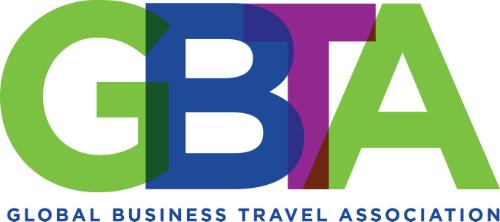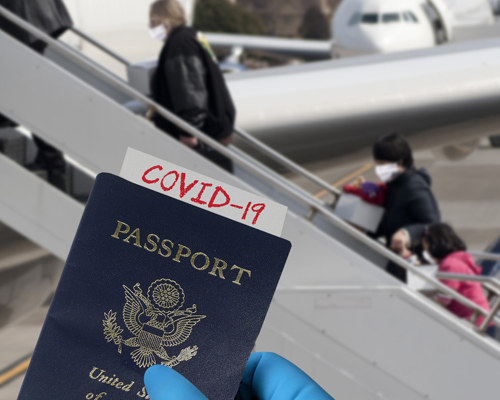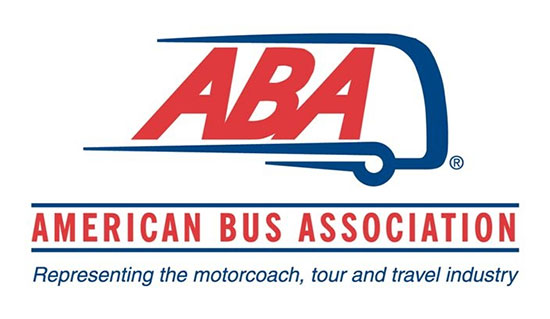- Details
- Category: Industry News
According to the most recent Global Business Travel Association (GBTA) poll, conducted between October 12-16, more than three-quarters of respondents (75 percent) believe that rapid testing prior to departure, and waiving quarantining requirements for those who test negative, are among the best ways to reopen international travel. Among European members specifically, this number rises to 86 percent.

When asked about the biggest barriers to travel, 63 percent of European GBTA members and 43 percent globally, cited government travel restrictions and policies, such as quarantine and entry restrictions, followed by company policy (32 percent), employee unwillingness/reluctance to travel (9 percent), and company cost savings (6 percent).
“The current patchwork approach to travel, particularly across Europe, is prolonging the devastating effects of COVID-19 on both the industry and the economy as a whole. It is evident from our latest poll that our members would welcome the opportunity to travel again in a safe environment and would be satisfied with the rapid testing approach pre-travel,” said Catherine Logan, Regional VP of Europe GBTA.

Despite the rapid growth and necessity for virtual meetings, 82 percent of respondents still feel face-to-face meetings are ‘more’ or ‘much more’ effective. Fewer feel virtual meetings are equally effective (14 percent) and just 2 percent see virtual meetings as more effective.
“There is a clear indication that regular business travelers are looking forward to returning to travel and the benefits of a face-to-face meeting are undisputable. Almost all GBTA members (94 percent) flew for business prior to March 2020, before the start of the pandemic, but just 6 percent have flown since—a clear illustration in the loss of revenue not only for the business travel industry, but from corporations not closing new business deals to the wider global economy and GDP,” commented GBTA Interim Executive Director Dave Hilfman.
The impact of COVID-19 is reinforced by the poll figures which finds 59 percent of GBTA member companies reduced staff or laid off employees as a direct result of the pandemic, while 52 percent furloughed employees, and 48 percent introduced pay cuts. Almost half (46 percent) of those GBTA member organizations with furloughed employees report seeing some return to work in some capacity.
The lack of government support continues to be a point of contention and 62 percent of members think it is ‘very likely’ or ‘likely’ that further reductions or staff layoffs are inevitable if additional government aid is not received. Half (51 percent) predict further furloughs and 46 percent believe further pay cuts are likely or ‘very’ likely without government interaction.
The current short-term forecast for travel remains unchanged with 90 percent of GBTA member companies still not open to International travel and 68 percent domestically, as companies continue to cancel and/or suspend almost all business travel regardless of destination.
“The need for government support for business travel suppliers is evident. GBTA is collaborating with other industry associations, industry bodies and supplier members to lobby governments in each of the key business travel regions for more financial support and a swift, safe return to business travel,” said Hilfman.
View the entire poll results here.
GBTA has been polling members since the beginning of the pandemic; the results of all polls can be accessed here.
Methodology
GBTA conducted a poll of its members across the globe from October 12-16, 2020. A total of 927 responses were received.
Visit gbta.org for more information.
[10.23.20]
- Details
- Category: Industry News

The American Bus Association (ABA), United Motorcoach Association (UMA), National School Transportation Association (NSTA), and Passenger Vessel Association (PVA) are asking why the bipartisan Coronavirus Economic Relief for Transportation Services (CERTS) Act (S.4150/H.R.7642) is ignored as discussions continue on Capitol Hill on the next stimulus package.

The associations and its members and supporters have been reaching out to their Congressional representatives for months as the industries fights for their life—an unprecedented effort that yielded tens of thousands of emails, phone calls, and meetings with representatives. As a result, the bills both enjoy a majority of House and Senate support—the strongest among the numerous industry-specific bills that are currently circulating through Congress—although its fate is tied to larger and sweeping stimulus, which has been stalled for months in a war between the two chambers and the Trump administration.

The coalition released the following statement:
“The numbers speak for themselves on the level of support the CERTS Act has received in both chambers of Congress: 59 Senators and 263 Representatives (60 percent) bipartisan cosponsors. We have been begging and pleading with Congressional leaders, especially Speaker Pelosi, Leader McConnell, and the White House, for more than seven months to provide our industries a lifeline to save our essential employees and our businesses. These businesses and workers are critical to the nation’s transportation system. They serve students, seniors, minorities, and other travelers and commuters, as well as the military and they move people out of harm’s way during wildfires and hurricanes. They deserve better. We need Congress to come together and give true relief to all the modes of transportation that serves everyone and keeps the American economy moving forward during this pandemic."
The House version of the CERTS Act is the most bipartisan and supported relief bill in today:
- 176 CERTS cosponsors are Democrats, which is 66 percent of total co-sponsors and 75 percent of the entire Democratic Caucus.
- Of the 176 Democrat cosponsors, 88 (50 percent) are Committee or Subcommittee Chairs.
- Of the 130 Committee and Subcommittee Chairs of Standing and Select Committees, 88 (67 percent) are CERTS cosponsors.
- Of the 23 Standing and Select Committee Chairs, 16 (69 percent) cosponsored CERTS.
- Of 12 Appropriations Subcommittee Chairs, 8 (66 percent) are CERTS cosponsors. (Chair Sanford Bishop, José Seranno, Mike Quigley, Lucille Roybal-Allard, Betty McCollum, Rosa DeLauro, Tim Ryan, and David Price)
- The CERTS Act has 37 House cosponsors from California, which is 69 percent of their delegation
The Senate version of the CERTS Act is also the most bipartisan and supported relief bill in today:
- 59 cosponsors (59 percent of entire Senate)
- 36 (59 percent) cosponsors are Democrats, which represents 77 percent of all Senate Democrats
- 23 (38 percent) cosponsors are Republicans, which represents 43 percent of all Senate Republicans
- Of the 59 cosponsors, all but 2 are Chairs, Subcommittee Chairs, Ranking Members, or Ranking Subcommittee Members of Standing and Select Committees
- 39 states are represented on this bill with either one or both Senators supporting
According to the associations, the U.S. private motorcoach, school bus, and domestic passenger vessel industries have collectively furloughed or laid off an estimated 308,000 employee jobs over the last eight months due to the COVID-19 pandemic.
For more information on the bills, visit congress.gov.
[10.23.20]
- Details
- Category: Industry News

The International Association of Transportation Regulators (IATR) 33rd annual conference begins on Monday with a ton of sessions focused on the event’s theme of “Resilient Regulation!” Today it was announced that Her Excellency Dagmawit Moges, Minister of Transport of the Federal Democratic Republic of Ethiopia, will deliver the opening keynote speech on Tuesday, October 27 at 9:00 a.m. (ET)—and addition to an already packed schedule that features more than 70 speakers over the four-day event. The conference will be held virtually for the first time this year.
 Her Excellency Dagmawit Moges H.E. Dagmawit Moges Bekele was appointed as Minister of Transport of the Federal Democratic Republic of Ethiopia in October 2018. After studying for her BA in Public Administration and Development Management (PADM), she worked as a Graduate Assistant Lecturer at Addis Ababa University (A.A.U). She acquired her MA in Public Management and Policy (MPMP) from the same department and university. She worked as a General Manager of Kolfe Keraneyo Sub-City of A.A City Government and then served as Micro and small Enterprises Development Bureau Head of A.A city Government. Subsequently she worked as a Deputy Bureau head of Addis Ababa City Government Trade and Industry Bureau then a Deputy Bureau head of Addis Ababa City Government Capacity Building Bureau.
Her Excellency Dagmawit Moges H.E. Dagmawit Moges Bekele was appointed as Minister of Transport of the Federal Democratic Republic of Ethiopia in October 2018. After studying for her BA in Public Administration and Development Management (PADM), she worked as a Graduate Assistant Lecturer at Addis Ababa University (A.A.U). She acquired her MA in Public Management and Policy (MPMP) from the same department and university. She worked as a General Manager of Kolfe Keraneyo Sub-City of A.A City Government and then served as Micro and small Enterprises Development Bureau Head of A.A city Government. Subsequently she worked as a Deputy Bureau head of Addis Ababa City Government Trade and Industry Bureau then a Deputy Bureau head of Addis Ababa City Government Capacity Building Bureau.
To register for the conference, or to see the full lineup of sessions and speakers, visit iatr.global/2020.
[10.23.20]

